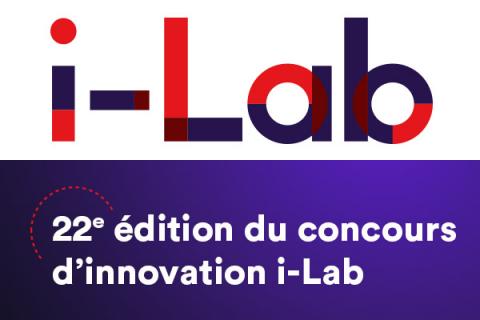
i-Lab 2020: several winners linked to Université Paris-Saclay
Eight award-winning projects of the 2020 edition of the i-Lab national innovation competition, including one Grand Prize, come from the laboratories of Université Paris-Saclay or are led by its former students.
The 22nd edition of the i-Lab competition, which promotes the results of French research through the creation of innovative technology companies, awarded 73 projects out of the 424 finalized applications. This competition, led by the Ministry of Higher Education, Research and Innovation, in partnership with Bpifrance, provides support through significant financial assistance and support.
The winning projects respond to future challenges and issues of major societal interest. In particular, they aim to foster the emergence of an environmentally friendly agriculture, reduce CO2 emissions from polluting industries, offer sustainable alternatives to plastic packaging, accelerate towards quantum computing, better control emerging diseases or pave the way for tomorrow's surgeries that cannot be performed by a human hand.
Among these 73 winners, ten Grand Prizes are awarded to outstanding projects that are remarkably in line with one of the ten societal challenges defined by the France Europe 2020 agenda (sober management of resources and adaptation to climate change; clean, safe and efficient energy; stimulating industrial renewal; health and well-being; food security and demographic challenge; transport and sustainable urban systems; information and communication society; innovative, inclusive and adaptive societies; spatial ambition for Europe; freedom and security of Europe, its citizens and residents).
The winning projects linked to Université Paris-Saclay are:
Electronics, signal processing and instrumentation
- The InBolt project, led by Rudy Cohen, a former student of ENS Paris-Saclay. It aims to improve the traceability and reliability of manual processes in the industrial world.
Materials, mechanics and industrial processes
- The FinX project, led by Harold Guillemin, a former student at CentraleSupélec. It is developing the first electric motor for a flipper boat.
Digital, software technologies and communication
- The I-Ris project, led by Sami Kraiem of the VEDECOM Institute, of which UVSQ is a founding member. It aims to understand the mobility of people in order to optimize transport services.
- The Mangrove project, led by Emeric Lemaire, former student of ENS Paris-Saclay. It is rolling out a decentralized platform for the valorization of health data.
- The PROQURE project, led by Georges Reymond, from the Charles Fabry Laboratory (LCF - Université Paris-Saclay, Institut d'Optique Graduate School, CNRS). It is developing a quantum Rydberg atom processor that goes to scale. Grand Prize.
Pharmaceuticals and Biotechnology
- The CERES BRAIN Therapeutics project, led by Thomas JOUDINAUD. A CEA spin-off, the company is exploiting four patents from the Pharmacology and Immunoanalysis Unit (SPI - University of Paris-Saclay, INRAE, CEA) and the Molecular labeling and bio-organic chemistry unit (SCBM - Université Paris-Saclay, CEA). It is developing a nasally administered drug to treat a genetic autistic syndrome in children.
- The ELPIS project, led by Philippe Chambon. The project is based on a patented technology and work begun in the research unit Neuromuscular Disability: Pathophysiology, Biotherapy and Applied Pharmacology (END-ICAP - Université Paris-Saclay, UVSQ, Inserm) and AP-HP. It targets the development of gene therapy products for the treatment of urinary disorders.
- The IMESCIA project, led by Tanguy Boissenot and coming from the Institut Galien Paris-Saclay (IGPS - Université Paris-Saclay, CNRS). It focuses on the development of highly active anti-cancer drugs administered subcutaneously.
